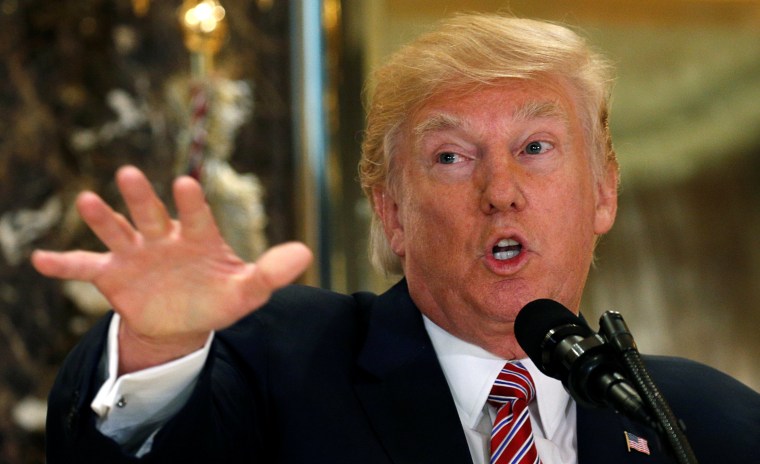Donald Trump has been alarmingly aggressive in accusing federal law enforcement of "treason" -- a development without precedent in modern American history. Yesterday, NBC News' Peter Alexander followed up on this rhetoric by asking the president to be more specific.
From the official White House transcript:
ALEXANDER: Sir, the Constitution says treason is punishable by death. You've accused your adversaries of treason. Who specifically are you accusing of treason?TRUMP: Well, I think a number of people. And I think what you look is that they have unsuccessfully tried to take down the wrong person.ALEXANDER: Who are you speaking of?TRUMP: If you look at Comey; if you look at McCabe; if you look at probably people -- people higher than that; if you look at Strzok; if you look at his lover, Lisa Page, his wonderful lover -- the two lovers, they talked openly.
At a certain level, I suppose this starts to appear routine. In 2019, Americans are just accustomed to having a president who likes accusing people of capital crimes -- without evidence or regard for culpability.
But the familiarity of the circumstances isn't a credible defense. None of the people Trump lashed out at yesterday committed treason. He may have convinced himself otherwise, but that's partly because Trump still doesn't know what "treason" means.
Also note the president's casual assertion that "people higher" than the FBI director and deputy director may be guilty of the same crime. That's a very small universe of individuals, which appears to include former Attorney General Loretta Lynch and former President Barack Obama.
Are we to assume they're the next people who'll face similar allegations from the erratic president?
A Washington Post analysis published yesterday described Trump's assertions as "ridiculous," and added:
"You can commit treason in one of two ways," Carlton F.W. Larson, professor of law at the University of California at Davis and author of the upcoming book "The Trials of Allegiance: Treason, Juries and the American Revolution," said when we spoke by phone. "One is you can levy war against the United States, which is essentially raising an internal rebellion to overthrow the government. ... The other would be adhering to the enemy, giving them aid and comfort. And 'enemy' is defined very precisely as foreign nations or groups with whom we are in a state of open war."So unless Comey and McCabe raised an army to take on the U.S. military or provided direct aid to countries who are officially at war with the U.S. -- countries to be named later -- they didn't commit treason. By definition.In fact, Larson said that Trump's use of the term was precisely what the Founding Fathers were hoping to avoid."It was very clear," he said: "One of the reasons to limit the offense the way it was done in Article III was to prevent it from being a political tool where people in power use it to suppress their political enemies."
Or put another way, the law is intended to prevent the kind of abuses Trump is eager to implement.
